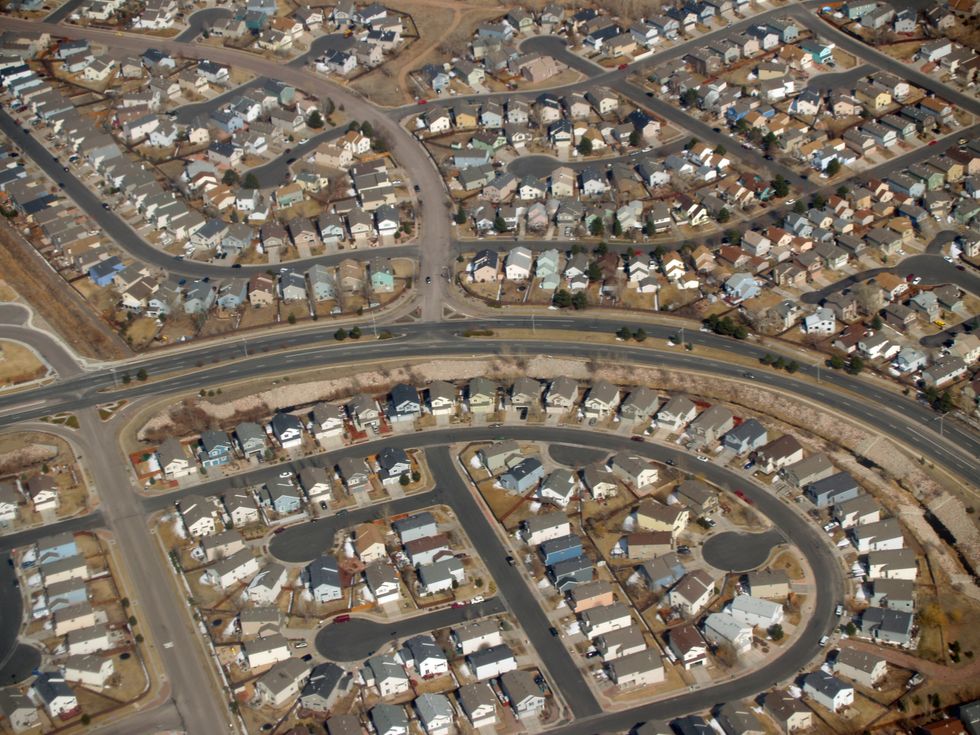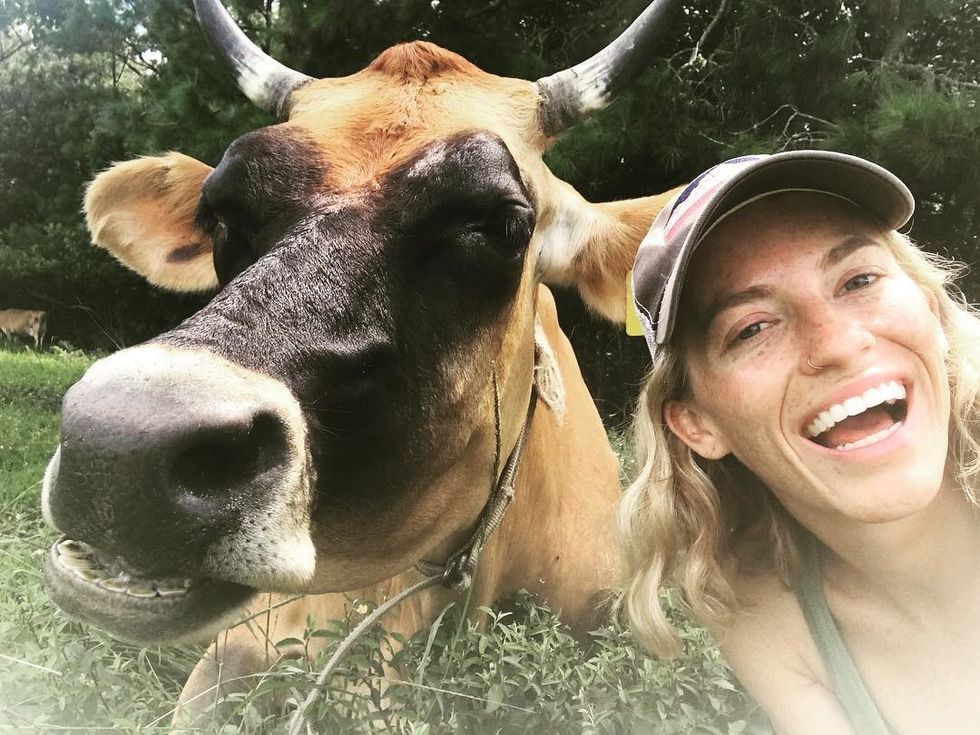As a student attending Ohio University, a college that takes part in Earth Day Every Day, taking care of the Earth and living a sustainable life are very important to me, and they should be important to everyone else as well. After all, there is only one planet that we know of that can sustain life, so until we somehow find another Earth (doubtful), I think we should do our best to keep our home planet going for as long as we can. Here are five ways we are killing our planet daily, along with five suggestions on how to change our destructive habits.
(Disclaimer: this article is intended to educate and present ways in which to live sustainably, not to degrade and offend people. I am guilty of pretty much everything on this list, so when I poke fun, it's usually geared towards myself along with the rest of us.)
1. Drinking out of plastic straws

Despite all of their uses (drinking, spitballs etc.), straws really suck. Ha. They suck. Cause they're bad, and they are used to… you get the point. That, my friends, is what's called a double entendre. But I'm going off topic. Straws are really destructive and cause way more damage than people generally think. First of all, they are used once, maybe twice, then they are discarded. And EVERYONE uses them. That comes up to us using about 500 million straws PER DAY. And plastic doesn't just "disappear" or even biodegrade. You know where it goes? Either in a landfill or the ocean or some poor creature's stomach. No wonder coral reefs are bleaching out and aquatic animals are dying of starvation (due to all of the plastic in their stomachs that they can't digest). Not to get too serious too soon, but that's the reality of it all.
The solution to this very sad problem? Don't. Use. Straws. When at a restaurant, just ask for no straw. Your server won't judge you, and so what if they do? It's like saying you don't want lemon in your water. In other words, it's not a big deal. And if you think it's gross to put your lips on a restaurant cup, think about the fact that you are DRINKING out of that cup, so you're gonna ingest germs no matter what. "But it's nasty!" You know what's really nasty? The Great Pacific Garbage Patch. So congratulations. You just choked a majestic (and endangered) sea turtle because you were too squeamish to ask for no straw.
2. Driving cars

Yeah, there's pretty much no way to completely avoid this one (yet), but there are ways we can go a little greener in our commutes. But what is wrong with cars? Well, kids. In order to run, they need gasoline, which is made out of a fossil fuel. What that means is there is only so much of it left, and we won't be able to make more in the future. We are literally going to war over this precious fuel because it is running out. What did you think our conflict in the middle east was about before terrorism? Another fun fact about gasoline is that when burned (which is how cars use it), it produces greenhouse gasses and emits toxic chemicals into the air (such as carbon monoxide, hydrocarbons, and microparticles) which get into our lungs and could cause health problems. All of these facts suck (much like straws) but what sucks, even MORE, is that humans aren't very careful with gasoline. When it is being transported overseas, there is a risk of the boat sinking and spilling all the oil into the ocean, which has disastrous effects on wildlife and the economy.
This isn't a pleasant conversation, is it? And cars are such a huge part of daily life, it's kind of impossible to avoid them like you can with straws. So what can we do about this? There are a few options: drive fuel efficient/electric cars, take the bus, carpool, ride a bike, or walk (if you can). Big, gas-guzzling trucks are a big no-no, even if you feel like they make you look cool (news flash: they don't). Sustainable cars are the future (even Ford is finally starting to understand that), so we might as well jump on the bandwagon and drive Econ and environmentally friendly vehicles.
3. Eating beef

Don't get all vegetarian-phobic on me now. Just hear the facts about meat production, okay? I am not a vegetarian, but I've tried to cut down on meat because I know how bad it is for the planet. Plus, I've started to lose my taste for it, but that's a personal preference. First off, it takes TONS of water to raise and slaughter cows. A single pound of hamburger meat takes almost two thousand gallons of water to produce. If you think of all the hamburgers sold every day, that's a LOT of water down the drain. And these statistics come from the amount of water it takes to produce food for the animal plus whatever it drinks. A veggie burger patty only takes about 800 gallons to make, and tastes amazing. And as funny as it sounds, cow farts are terrible for the environment. Methane gas is produced in their tummies and is released in a smelly fart which floats up to the atmosphere, where it remains as a greenhouse gas.
How do we solve this meat problem? It's quite simple: cut down on how much meat you eat, or you can even become vegetarian. If that doesn't sound like a lifestyle you would prefer, well, think about the lifestyle of a beef cow. If it survives on a diet of grain and lives in the mud; there's no quality of life there. If a cow eats grain, there's a higher chance of e-coli present in the meat. At least make sure whatever beef your eating was grass-fed during its time on earth. And if it was raised locally, that's even better. Develop some empathy. Remember: you are what you eat. It would suck to be a cow living in a death factory.
4. Eating fish

Now, there's also a problem with the fishing industry. As a seafood lover, this makes me especially sad. Firstly, the most common way fishermen catch fish is through bottom trawling, which has horrible effects on the environment. Sometimes, the nets catch marine animals that weren't supposed to be caught (like dolphins or sea turtles), plus bottom trawling can lead to overfishing and algae blooms, which suck all of the oxygen out of the water, creating dead zones with no marine life anywhere. And, of course sometimes the nets get stuck on something at the bottom of the ocean, so the fishermen simply let them go. That's when marine animals get stuck in those abandoned nets and eventually die of starvation or lack of oxygen (if they are a dolphin or any aquatic animal with a blowhole). Switching the subject to lobsters for a moment, have you ever thought about how to kill one? We, civilized humans, boil them ALIVE. Some think that the lobster can't feel the burning sensation as it slowly cooks to death, but I call BS on that. Why? Because frankly, my dear, they would prefer NOT to be boiled alive. That's why they live in the colder parts of the ocean; they don't like feeling warm, let alone boiling water. Plus, they struggle as they slowly die, so there's also that...
If you like to fish, there really is no way to help this cause except by not eating fish. Or you could protest bottom trawling and overfishing. Let those mega food corporations know that you won't buy their fish unless they are caught in a less destructive way. Maybe vote for laws banning it if you live in a state on the coast? And switching back to the subject of lobster, just don't eat it. Please. It's inhumane and sad. I will judge you if I see lobster on your plate.
5. Living in the suburbs

I understand that this isn't something you can control if you are still living with your parents. But when you finally get to live on your own, don't choose the suburbs. The houses are big; much bigger than they need to be, especially if your family is small. They take up a lot of space and deprive animals from their natural habitats (we build right on top of them!). There's also this trend to have a lawn of grass in the front and back of suburban houses, and that grass needs watered every day. It's such a waste, when you think of all of the countries whose inhabitants struggle to even find clean water, and here we are, giving it to grass. And then there's the commute to work. The suburbs are meant for people to escape the hustle and bustle of life, which means it's far away from work. Sometimes more than an hour away. That requires a car and many trips to the gas station. And we already know the issue with cars, so…
Despite what you might think, living in a city is actually better for the environment. You will most likely be living in an apartment, so you won't have to worry about grass. Your job is probably in the city, so you have a walkable commute each day (no need for those pesky cars). And cities take up less space than a suburban town. More people live in a smaller area which means less deforestation and habitat loss. Now, I understand that cities can be dangerous, which is why a lot of people like to live in the suburbs. This is where I would recommend living in a townhome or even a row home. They are all smushed together, which means less grass and less space. Your commute might still be a bit long, but that's 2/3, so it's some sort of improvement. And there are usually parks and green areas for your kids to play. If I still haven't convinced you to move out of the suburbs, then think about how far away shopping areas are from your house. Yeah. With cities and townhome areas, the drive (or walk) is so much shorter. Have I still not convinced you? Fine. At least fill your yard with native plants. If they are native to the area, they won't need watered as much because they should be used to the conditions of their natural environment.
I care about our planet. I care so much that I wrote an article that is almost two thousand words long in order to try and spread the word about how we are destroying it. We have got to change the way we live, or else our future generations won't have a place TO live. We have to practice empathy. We need to care and dispose of that nihilistic attitude so many people have developed lately. Get yourself some reusable bags instead of using plastic ones. Recycle, for the love of all things holy. Maybe don't flush your toilet after a pee (or even just pee in the shower…). I give you permission to be disgusting as long as it's for the good of the Earth and its inhabitants. So go out there, and live your life with all of these things in mind. Every little change helps in bigger ways than you could ever imagine.



















